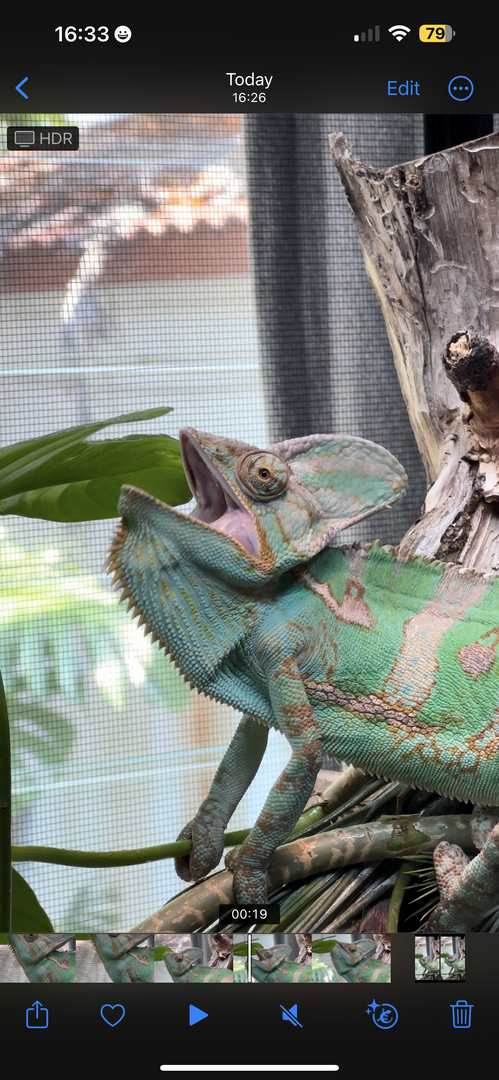Orangejuiceman
Member
Hello,
I’ve posted here more than a few times now trying to figure it all out as I go.
My chameleon is a year old now, cage has been approved and I follow Chameleon Academy pretty religiously.
I fear my chameleon has a respiratory problem and I’m not sure what’s causing it or if it’s too late. Today is Saturday, he has a vet appointment Monday, that’s the soonest.
He keeps opening his mouth, coughing, almost gagging. This has to be respiratory but it’s only showed up recently. I am at a loss and don’t know what to do. It’s hot in Miami so I’m keeping his cage temperature regulated as best I can. Never is above 85 at his basking lamp.
The coughing is concerning, he is coughing like a human. I don’t know how to post a video but here pictures.


I’ve posted here more than a few times now trying to figure it all out as I go.
My chameleon is a year old now, cage has been approved and I follow Chameleon Academy pretty religiously.
I fear my chameleon has a respiratory problem and I’m not sure what’s causing it or if it’s too late. Today is Saturday, he has a vet appointment Monday, that’s the soonest.
He keeps opening his mouth, coughing, almost gagging. This has to be respiratory but it’s only showed up recently. I am at a loss and don’t know what to do. It’s hot in Miami so I’m keeping his cage temperature regulated as best I can. Never is above 85 at his basking lamp.
The coughing is concerning, he is coughing like a human. I don’t know how to post a video but here pictures.







